The life of a speech and language therapist (SLT) is exciting and fulfilling, involving people from all parts of society.
Read on to find out what exactly this interesting career involves and learn about the rewards and challenges of the job from SLTs themselves.
These articles were previously published in Bulletin magazine.
Justice sector
Christian Boakye tells us about his role at a young offender institution.
Originally published in the December 2020 issue of Bulletin.
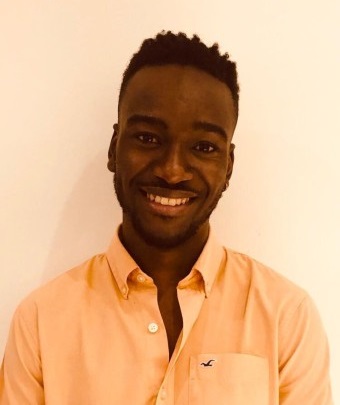
I feel fortunate to work with young offenders, aged 15 to 21, in my role at Feltham Young Offender Institution.
My aim is to highlight the communication strengths and needs of our young men, helping them to effectively engage in the criminal justice system and beyond. This involves increasing understanding of their own communicative ability and awareness of areas they may need support with, so that they’re able to employ effective strategies and advocate for themselves.
Of course, an important factor to successful participation is how well those around the young person can support any communication needs. This involves sharing recommendations from assessments, supporting the creation of accessible information and offering training. It ensures that staff feel confident in adapting the way they offer information, and young people are then more able to understand information given.
Understanding young people’s perspectives
Recently, I supported a young person to co-facilitate training for a group of prison officers. He spoke about his experience of having autism in prison. He explained how difficulty reading body language made him adopt the approach of “hit first and ask questions later”, and how he had been reprimanded on several occasions for unknowingly saying things deemed to be inappropriate.
This training allowed the officers to understand the young person’s perspective and enabled a productive conversation about the best ways to offer support.
Many of the young people I work with have had disrupted education or have grown up in environments ill-suited to acquiring age appropriate language skills. Then there is the impact of neurodevelopmental disorders like attention deficit hyperactivity disorder or or autism spectrum disorder on communication skills. Others may have a speech impairment, mental health difficulties or social communication difficulties. This makes for a busy and varied role.
Supporting communication needs
In fact, the prison environment can have a distinct impact on communication skills. Let’s take for example, the young man who, following multiple assaults, presents as hypervigilant. He constantly scans his surroundings for threat and is unable to fully concentrate on conversation or information given. As a result, he misses out on vital information and feels his interactions are not as meaningful.
Similarly, the impact of adverse childhood experiences can lead to attachment difficulties that may affect how a young person interacts with adults or people in authority. For example, a young person may present as rude, uncooperative or even overfamiliar. I enjoy working with the multi-disciplinary team to understand each young person’s individual journey and how this may affect their communication.
A recent highlight of mine was supporting a young person through his parole hearing. I made the parole board aware of strategies to support his communication needs and worked with the young person on his overall communication, including pace of speech, volume and non-verbal communication. After his parole hearing, his probation worker reported that he had clearly taken tips from his therapy on board and had given a good account of himself. This great news was made even better by the board granting him parole.
Make no mistake, prison can be a challenging environment to work in, but these moments make the job so worthwhile.
Seeing prison as a place of potential
It is difficult to ignore that Black, Asian and minority ethnic young people make up about 80% of our prison population at Feltham. As a Black man, I am passionate about doing what I can to help. I often work with young people of a similar cultural background to mine and I’d like to think this helps to engage them with the service but also, if seeing a young professional Black man could inspire hope and determination in just one young person, then it is all very worthwhile for me.
While others may view prison as a hopeless place, my view is quite the opposite – there is so much potential to be harnessed in these young men. I count myself lucky to be part of their journey.
To find out more about Christian’s work, listen to his interview with the RCSLT Sound Waves podcast.
Supporting homeless people
Leigh Andrews shares her experience of working with people sleeping on the streets.
Originally published in the July 2020 issue of Bulletin
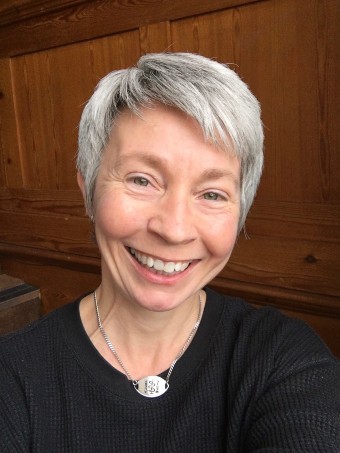
My name is Leigh and I work for Change Communication (ChgCommCIC), a non-profit organisation that helps people talk and listen. We work with people who are sleeping on the streets or who live in accommodation for people with a history of street homelessness.
For the most part, the old adage that we are all two pay cheques from being on the streets simply isn’t true. Street homelessness is much more likely to happen to people who have experienced poverty over their lives. At ChgCommCIC we think this group of people is discriminated against, and services that are charged with helping them are sometimes structured in ways that work against that goal.
Being flexible
I work with lots of great organisations that provide flexible and creative support to people living in exceptionally difficult situations, so it’s not unusual for plans to change last-minute – for example, a client appointment may have to move from a hostel to a day centre if an incident occurs.
Often a support worker will join the client in the meeting and the techniques I use as an SLT to support communication, such as the use of silence and pictures, can come as a surprise. But the techniques are usually so effective that support workers leave these meetings promising to give it a go themselves.
I worked as a support worker for 20 years in homelessness organisations before qualifying as an SLT and I now talk far less in client meetings. Funnily enough, I tend achieve more in less time as well!
Raising awareness
Awareness-raising is an important part of my role. Lots of people I work with have not had contact with an SLT or, if they have, they only know about one specific area such as child speech development. People are often the most surprised when I explain that we are the lead professional for swallowing difficulties.
After I’ve caught up on my paperwork, it’s not unusual for me to attend a meeting with homelessness, health and social work colleagues. In Westminster where I work, the city council is doing some excellent work around supporting people with autism who may be at risk of homelessness, and when I attend the steering group meeting it’s heart-warming to hear how much communication is valued and seen as being central to good support. At those meetings I distribute my contact details so people can contact me to discuss any potential cases where I may be able to help.
On my journey home I check Twitter, where I find lots of great contacts and useful information, which often prompts me to think about my practice and how I can improve. I make a note to discuss this with my clinical supervisor when we next ‘meet’ on Skype. Then it’s phone off, until tomorrow, when we start all over again!
Independent SLT
Sinead Campbell shares her experience of filming for the BBC and running her own practice.
Originally published in the March 2020 issue of Bulletin
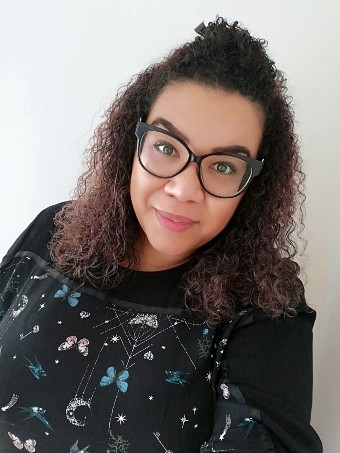
I have now been working as an independent therapist for just over two years and what a rollercoaster it has been. In early 2019, I had the opportunity to be involved in the BBC’s Tiny Happy People project. I saw a post from a production team who were looking for therapists to be involved in the project, so I got in touch. Within a week I had written over 50 Top Tip ideas for speech, language and communication for children ages 12 months to two years for the project.
A few days later I had a call to say these had been signed off and could I be ready to film. Another couple of days later, I was wearing a microphone, in front of a camera in cold, windy Cardiff, trying to remember the lines! It was a brilliant experience, and I am so proud of the little video clips we produced that made it onto their website for families to watch. They even invited me to be an expert panel member at their big launch event in London.
Expanding the practice
Since then, my independent practice has continued to thrive, especially during COVID when access to services was limited. I now have two wonderful therapists working with me and we are all very busy. We have a number of contracts with local authorities and schools, where we deliver training packages and support.
We also have a therapy room in the heart of Cardiff Bay where we see the majority of our private clients. In the last few weeks, I won a bid for a contract with Careers Wales, to train all of their post 16 careers advisors on how to recognise and support young people and adults with speech language and communication needs in the jobs market!
When I’m not working with children directly or writing session plans then I spend the rest of my hours doing essential tasks like developing my website, being actively involved on social media, marketing, promotional work, supporting my new team and the absolutely dreaded invoicing and accounts!
Alongside all of this, I have also just completed a three year Masters in Additional Learning Needs/Specific Learning Difficulties. I am excited about what this new knowledge will bring to my practice and the children and young people that we work with.
“I cannot think of a better profession to be in”
It can get a little overwhelming sometimes trying to wear so many hats and it can get a little bit lonely, but I have developed a really supportive network. I have a brilliant group of business minded, independent SLTs who I met through social media, who I chat to daily; they are always on hand to offer advice and support on every subject. I now have my team to bounce ideas off and our local Association of Speech and Language Therapists in Independent Practice group who provide invaluable ideas and experiences to draw from.
The variety and constant challenges are something that really spurs me on. There is something new to learn each and every day and whilst I still feel like I’m still new to the SLT game, I cannot think of a better profession to be in, where we have opportunities for such diverse working and spreading such a crucial message; that everyone deserves a voice, and that speech and language therapy can transform lives.
Senior lecturer and placement lead
Melanie Packer tells us about her work at Birmingham City University.
Originally published in the Spring 2021 issue of Bulletin
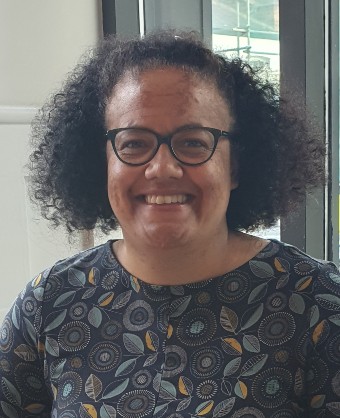
In my current working life, I constantly ask myself what it means to be a speech and language therapist (SLT). What skills, values and behaviours are needed? I frequently return to this question and conclude that my end goal is to be the best version of myself and for me, this is achieved in the service of others.
As a senior lecturer and placement lead at Birmingham City University (BCU), I still draw upon the knowledge, skills and values that are essential in clinical practice. Whilst teaching on professional practice modules I ask students to ask themselves the same question.
Collaborative working has always been pertinent to any professional activity that I’ve been involved in and this certainly hasn’t changed since making the transition into teaching. Now I have the privilege of working with students, BCU lecturers, experts by experiences and speech and language therapists from across the West Midlands region.
Since joining the teaching team at BCU, I have been heavily involved in preparing students for placement, sourcing placements and supporting practice educators. I have also been linked with other Higher Education Institutions (HEIs), as well as the RCSLT.
Responding to the pandemic
When the pandemic struck, the BCU team worked hard to find solutions for student placements. The pandemic forced lecturers and practice educators to think creatively and with great results. Collectively speech and language therapists across the region, both lecturers and practice educators ventured into the world of telehealth placements, health promotion placements, research and innovation placements, alongside face-to-face clinical opportunities.
I have witnessed how SLTs have adapted in response to the pandemic and worked tirelessly to explore, sustain or generate new ways of continuing and expanding upon placements despite the challenges faced. It has been a fantastic reminder of what a resourceful and resilient profession we are.
Giving back to the profession
Former colleagues have asked if I miss daily clinical interactions with clients, and the truth is I have always found working as a paediatric speech and language therapist incredibly rewarding. However, working in placement education gives me an opportunity to give something back to the profession by ensuring we have a contemporary, forward-facing speech and language therapy workforce that can meet the needs of the communities we serve.
I have come a long way since first working as a speech and language therapy assistant in 2001, and I feel incredibly proud to work as a speech and language therapist and lecturer.
COVID-19 vaccinator
Charlee Edgar tells us how she got involved with the COVID-19 vaccination programme.
Originally published in the Summer 2021 issue of Bulletin
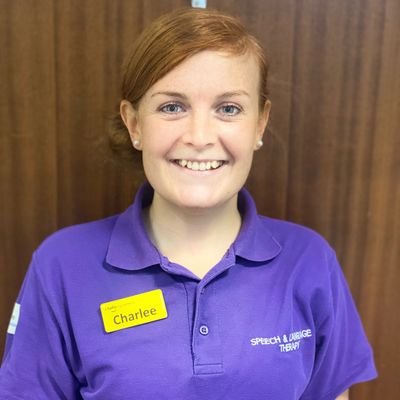
When I first started my SLT career I did not envision myself playing a significant role in a vaccination programme during a global pandemic! Pre-COVID (how we now reference time in our team!) I would be working with patients with communication and swallowing difficulties across a range of settings.
As the first COVID wave began to settle and the flu season approached, I felt it was more important than ever to receive the flu vaccine and I decided to play a proactive role in promoting the uptake of the flu vaccine across the wider trust. I therefore decided to train as a peer flu vaccinator.
Having never injected anyone before, I completed the training programme and was on my way to becoming an independent flu vaccinator alongside a range of my professional colleagues. I spent my lunch breaks in and out of offices around the hospital, vaccinating my peers and providing the reward of a flu fighter sticker.
A day in the life
Fast forward three months and I am waking up to complete a shift, at one of the regional vaccination hubs for the COVID vaccination programme. I spent my morning working through consent forms with individuals from the general public, my SLT skills came into play when describing the process and answering questions, using total communication strategies to support individuals to ensure they were making a fully informed decision.
In the afternoon my role changed to vaccinator, ensuring the individual was comfortable for their injection, for some, this was talking in meticulous detail about the process, for others, this consisted of me asking about what food they liked or their favourite holiday destinations, anything to cause a distraction!
The day ran smoothly, and it was not until I was cleaning down for the day when I reflected on a statement made by a member of the public. After their vaccination they simply stated, “Do you realise the role you have just played?” This particular statement stuck in my mind as I started to reflect on the skills and experiences I had gained: the new found professional relationships; how my role had changed; the patients I have lost and those that have returned home.
Reflections
In more recent months, I have been in a full-time clinical position on acute and COVID wards. I reflect on the future and how I would describe the role I played as an SLT during a historic period of time.
What resonates with me the most is the overwhelming emotion of gratitude and the support, not just from my colleagues and the general public on my first day as a COVID vaccinator but the unspoken support from the SLT profession to show what each individual can achieve as Speech and Language Therapists.


